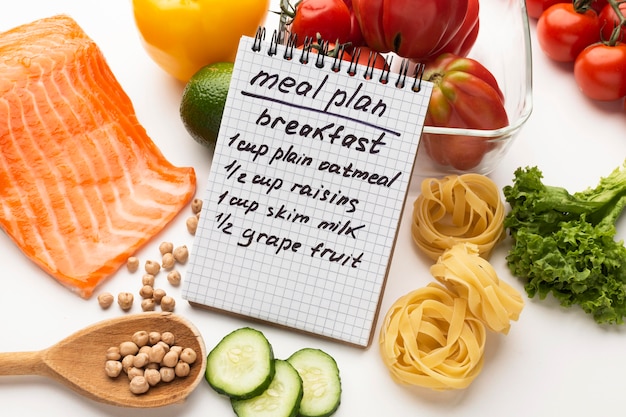
Alcohol addiction is a complex and difficult condition impacting millions around the globe. Recovering from it can be a tough journey, and there’s no one-size-fits-all answer. It’s important to care for both your mind and body, and that’s where good nutrition becomes important.
While getting professional help from treatment centers like West Coast Recovery Centers is essential, eating right also plays a significant role in the recovery process. This article highlights how nutrition supports alcohol addiction recovery and shares tips for meeting your nutritional needs.
Alcohol misuse drains the body of essential nutrients, affecting health and recovery. But with the right nutrition, you can aid in healing and rebuilding your body.
Long-term alcohol use leads to severe nutrient deficiencies, harming digestion and absorption. Deficiencies in nutrients like thiamine, folate, magnesium, and zinc can damage brain pathways involved in thinking, emotions, and self-control.
Addressing these deficiencies with a balanced diet full of fruits, vegetables, whole grains, and lean proteins can restore bodily functions and overall health.
Alcohol changes brain chemistry, causing cravings, mood swings, and anxiety. Nutrients such as omega-3 fatty acids found in fatty fish, walnuts, and flaxseeds can support healthy brain function and emotional balance.
Alcohol toxicity leads to brain shrinkage, negatively affecting memory and focus. Including nutrients like vitamin E, curcumin, and vitamin C in your diet can aid brain cell regeneration, improving cognitive function and reducing withdrawal symptoms.
The liver is key to detoxifying the body, breaking down harmful substances like alcohol. Consuming antioxidants found in colorful fruits and vegetables can support your liver’s detox process and repair.
Overall, targeted nutritional therapies help recover from alcohol addiction by providing vital nutrients, stabilizing neurological pathways, reducing cravings, enhancing mental health, aiding detoxification, and supporting long-term sobriety.
Those in recovery often experience low appetite and nausea at first. Eating small, regular meals and snacks throughout the day ensures a steady supply of essential nutrients, preventing blood sugar dips that can trigger cravings. Keeping blood sugar levels stable helps prevent cravings, benefiting both physical and mental health.
Staying hydrated is also crucial. Replace alcohol with water with lemon or lime, herbal teas, diluted fruit juices, coconut water, skim milk, and smoothies instead of sugary sodas or juices.
People with alcohol addiction typically don’t consume balanced meals, leading to vitamin and mineral deficiencies. A diet rich in vitamins, healthy fats, minerals, lean proteins, and complex carbohydrates can reverse these deficiencies. Good options include eggs, fatty fish, nuts, seeds, beans, lentils, whole grains, and brightly colored fruits and vegetables.
Certain smells, tastes, or eating environments can trigger memories of drinking, causing cravings and risking relapse. In early recovery, identifying and avoiding these trigger foods is helpful. This might include salty snacks, caffeinated drinks, and foods usually consumed with alcohol like pub food, spicy dishes, or comfort foods. Mindfully removing these triggers can reduce relapse risk and support sobriety.
Excessive alcohol harms gut health and microbiome balance, reducing nutrient absorption. Consuming probiotic foods like yogurt, kefir, sauerkraut, kimchi, kombucha, miso, and fermented pickles, or taking a daily probiotic supplement, can help restore digestive health.
Too much sugar can increase relapse risk by creating strong cravings and mood swings. During recovery, satisfy sweet cravings with nutrient-dense options like fruits, whole grains, and dairy products, which offer essential vitamins and minerals.
Preparing fresh, nutritious meals can be emotionally healing and empowering during recovery, helping regain control over nutrition. Quick and easy meal options include one-pot dishes, sandwiches, smoothies, salads, and sheet-pan roasted vegetables and fish.
Cooking and eating wholesome family meals also reconnects recovering individuals with loved ones, building sober support networks and improving recovery outcomes.
Insomnia and sleep disturbances are common in early recovery due to alcohol withdrawal, impacting brain healing and increasing relapse risk. Consuming foods and drinks that promote sleep, like tart cherry juice, chamomile tea, turkey, bananas, oats, and those containing tryptophan, magnesium, and calcium, can improve sleep quality.
Healing from alcohol addiction involves significant physical and emotional healing and lifestyle changes. Prioritizing nutrition provides the essential building blocks to repair damage, restore health, and improve recovery chances.
Moreover, find healthy ways to reward and celebrate recovery milestones. With proper nutrition, professional help, mindfulness, and other holistic approaches, you can achieve lifelong sobriety following alcohol addiction.